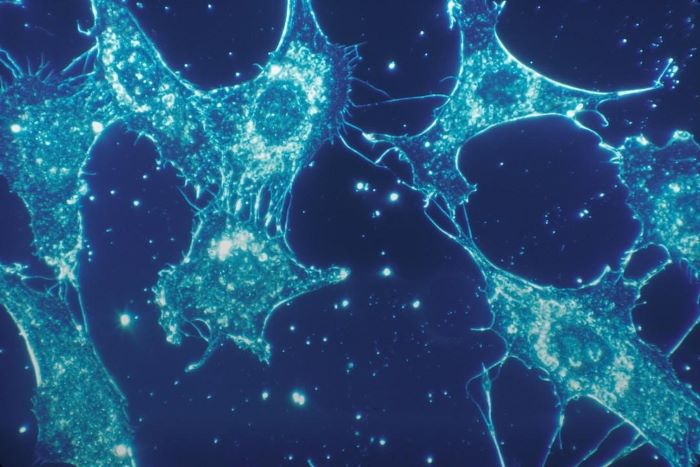Alcohol has been woven into the fabric of various cultures across the globe, seen as a social lubricant, a rite of passage, or even a comfort in difficult times. While moderate consumption can be part of a balanced lifestyle, excessive or prolonged use can have significant impacts on cognitive functioning. This reality underscores the importance of resources like a luxury rehab center in Phoenix, where individuals battling alcohol addiction can receive comprehensive care tailored to their unique needs.
The Role of Alcohol in Our Society
Historically, alcohol has occupied a significant space within human society. Enjoyed in moderation, it has served as a conduit for camaraderie and celebration. Yet, it’s not a secret that alcohol also has a darker side. Despite its pervasive presence, the potential for alcohol abuse and the subsequent cognitive impairments it may cause should not be taken lightly.
The dichotomy of alcohol’s position in society poses a distinct challenge for public health, necessitating nuanced understanding and open dialogue about its impacts on cognitive functioning. These conversations are crucial in dismantling the stigmatization of addiction and in facilitating the road to recovery for those who need it.
Cognitive Impacts: Short and Long-Term Effects
The cognitive impacts of alcohol can be divided into two categories: short-term and long-term effects.
Short-Term Effects
The short-term effects of alcohol include a range of cognitive impairments that occur during or shortly after drinking. These include diminished attention span, reduced information processing speed, impaired memory, and poor decision-making ability. Even at low doses, alcohol can hinder cognitive functions such as motor control, resulting in delayed reaction times.
Long-Term Effects
Long-term effects are seen in chronic, heavy drinkers and can result in persistent cognitive impairments, even after the cessation of drinking. Alcohol-related brain damage can manifest in several forms, including alcoholic dementia, Wernicke-Korsakoff syndrome, and a general decline in cognitive capabilities, affecting memory, attention, problem-solving, and emotional regulation.
Some of these cognitive deficits may persist even after prolonged periods of abstinence, suggesting that chronic alcohol use might lead to lasting brain changes. In other cases, some cognitive functions may partially recover with sustained abstinence and appropriate therapeutic interventions, emphasizing the importance of early intervention and sustained recovery efforts.
The Biological Basis: Exploring Alcohol’s Mechanisms of Action

Diving deeper into the science, it’s important to understand that alcohol’s effects on cognition are intricately tied to its mechanisms of action in the brain. Ethanol, the active ingredient in alcoholic beverages, is a small and soluble molecule that can easily cross the blood-brain barrier and affect the central nervous system (CNS).
Once in the CNS, ethanol targets multiple neurotransmitter systems, causing a broad range of effects. It stimulates the release of dopamine in the brain’s reward center, reinforcing its consumption. This pleasure-seeking drive often overrides the cognitive control systems, leading individuals to continue drinking despite adverse consequences.
Alcohol and the Brain: The Science
Alcohol exerts its effects on the brain in several ways. It primarily targets the brain’s reward system, flooding it with dopamine and stimulating feelings of pleasure and relaxation. However, prolonged exposure to alcohol can alter this system, leading to tolerance, dependence, and addiction.
Alcohol also inhibits the function of glutamate, a neurotransmitter responsible for brain activity and energy. Simultaneously, it increases the activity of GABA, a neurotransmitter that slows down brain processes. These combined actions result in the slowing of physical and cognitive reactions that we commonly recognize as signs of drunkenness: slurred speech, unsteady movement, slow reaction times, and impaired memory.
Over time, these alterations can result in significant cognitive impairments, from mild memory issues to severe forms of brain damage, such as Wernicke-Korsakoff Syndrome. Prolonged alcohol use can also lead to neurodegeneration – the loss of neurons – and disrupt the growth of new brain cells, which could contribute to long-term cognitive deficits.
Alcohol and Neuroplasticity: An Unsettling Interaction
Moreover, chronic alcohol consumption disrupts neuroplasticity – the brain’s ability to reorganize and form new neural connections. This disruption can lead to cognitive deficits that persist even after alcohol cessation, adding another layer of complexity to the problem.
Alcohol’s effect on neuroplasticity is multifaceted, influencing both structural and functional aspects of the brain. Structurally, chronic alcohol abuse can lead to a reduction in brain volume, particularly in regions like the frontal cortex and hippocampus, which play crucial roles in cognitive functions like decision-making, memory, and emotional regulation.
Functionally, alcohol disrupts the delicate balance of excitatory and inhibitory neurotransmission, essential for learning and memory. Over time, this can result in cognitive impairments that outlast the period of intoxication.
Alcohol and Sleep: An Overlooked Connection
Alcohol’s impact on cognitive functioning can also be seen in its interaction with sleep. Alcohol has been shown to disrupt sleep patterns, contributing to poor sleep quality and duration. This disruption can negatively affect cognitive performance, as sleep plays a crucial role in memory consolidation and cognitive restoration.
Moreover, poor sleep can indirectly contribute to cognitive impairment by exacerbating mental health issues like anxiety and depression, which are common in individuals with alcohol use disorder. Thus, addressing sleep disturbances in the treatment of alcohol-related cognitive impairments can be an essential component of a comprehensive care plan.
The Road to Recovery: Addressing Alcohol-Induced Cognitive Impairments

Thankfully, for many suffering from alcohol-induced cognitive impairments, there is a path to recovery. The first step is recognizing the problem and seeking help, a decision that requires immense courage and resilience.
Treatment typically involves withdrawal symptoms and detoxification, followed by various therapeutic interventions like cognitive-behavioral therapy (CBT), support groups, and lifestyle modifications. These approaches help patients understand the root causes of their addiction, manage cravings, and build healthier coping mechanisms.
Emerging research suggests that cognitive training, a form of intervention that aims to enhance cognitive abilities through targeted tasks and exercises, may also be effective in mitigating some of the cognitive impairments caused by chronic alcohol use.
Prevention Strategies: Reducing the Risk
Prevention plays an equally crucial role in addressing the cognitive impacts of alcohol. Implementing effective strategies to prevent or reduce heavy drinking can significantly decrease the incidence of cognitive impairments associated with alcohol use.
These strategies can range from public health initiatives promoting responsible drinking to early intervention programs targeting at-risk individuals. Education about the cognitive risks associated with excessive alcohol consumption, both in school curricula and public campaigns, can also play a crucial role in prevention efforts.
Moreover, fostering healthy coping mechanisms and resilience in individuals can help reduce the risk of developing alcohol use disorders, thereby minimizing the potential for cognitive damage.
“Sobering” Up: Concluding Thoughts on Alcohol’s Cognitive Impact
In conclusion, alcohol, despite its widespread use and societal acceptance, carries with it the potential for serious cognitive harm. The short-term cognitive impairments, while often reversible, can lead to immediate risks, such as accidents or risky behaviors. The long-term impacts, however, can lead to lasting changes in cognitive functioning, impacting an individual’s quality of life, relationships, and societal contribution.
As we continue to explore alcohol’s grip on cognitive functioning, it’s essential to highlight that hope and recovery are within reach. Support from loved ones, healthcare professionals, and specialized treatment facilities can provide the necessary tools to navigate this challenging journey, ultimately leading to a healthier, sober life.
The fight against alcohol’s cognitive impacts is a testament to human resilience and the power of informed choices. Whether it’s choosing to drink responsibly, supporting a loved one through their recovery, or contributing to a broader societal understanding of alcohol’s effects, each action matters in shaping our collective response to this public health concern.


